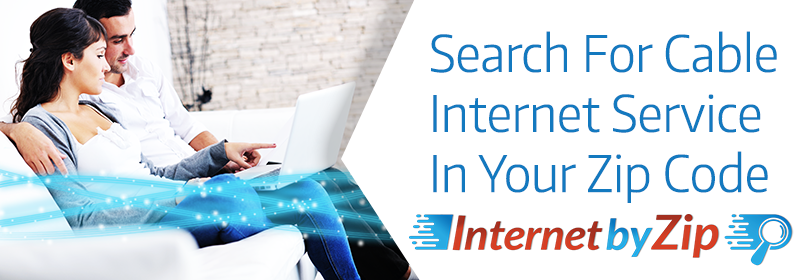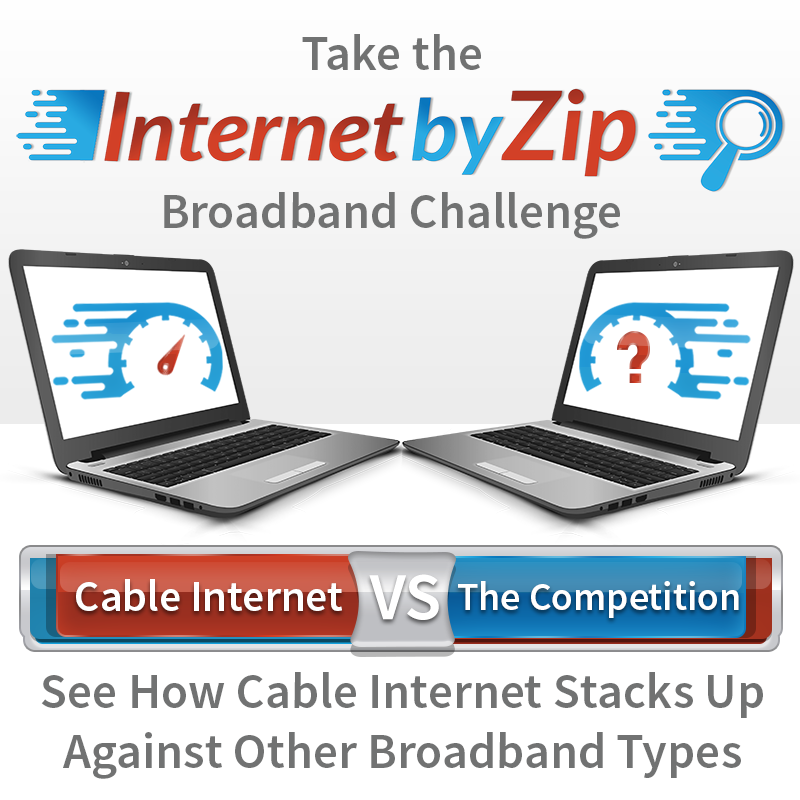
What is Cable Internet?
Cable internet is a type of broadband that allows users to connect to the internet. Cable companies use coaxial cable and fiber optic lines to provide internet service to homes, while telecommunications companies use either standard copper wire or fiber optic lines. Not long after people started getting internet access to their homes, mostly with dial-up internet, cable TV companies discovered that the same cables that were used to bring cable television into people's homes could also be used to provide high-speed cable internet. Since people already had the coaxial cables coming into their homes from the cable company, this was a cost effective and efficient way to provide faster internet to existing cable subscribers as well as open the door to new customers looking for a faster way to connect to the web. Cable internet access offered a much faster internet connection than dial-up, which quickly made it one of the best internet options for many households.
How Cable Internet Works:
Cable internet access works using either coaxial cable, fiber optic cable, or a combination of the two called hybrid fiber-coaxial (HFC). Two pieces of hardware are also required to provide cable internet access to your home; a DOCSIS compatible cable modem, installed at the customers location, and a cable modem termination system (CTMS) at the cable providers master facility or hubsite where television signals and data signals are processed and correctly distributed over the cable television and data network.
What is DOCSIS?
DOCSIS - An acronym that stands for Data Over Cable Service Interface Specifications, is the standard telecommunications specification that cable companies and telecommunications providers use to seamlessly implement high-speed internet access and data services over coax cable TV networks. DOCSIS specifications are of great importance because they provide ISP's and equipment manufacturers the most current standards when installing cable networks or building DOCSIS compatible cable modems and other network hardware. Through each iteration, DOCSIS has maintained cross-version compatibility, or backwards compatible capabilities by allowing older modems to connect at their current DOCSIS standard - even when a cable modem termination system is using a more recent DOCSIS standard.
Quick Guide to DOCSIS Standards & History:
This guide lets you compare types of cable internet DOCSIS standards and associated speed capabilities. DOCSIS standards listed from newest to oldest:
How Fast is Cable Internet?
With the newest technology and cable internet equipment available, cable internet speeds can reach speeds of almost two gigabits per second. "Can," is the operative word there. The speed you will be able to get varies greatly depending on where you live and what cable internet service provider is available in your zip code. In the real world, typical download speed range from 20 Mbps to 100 Mbps in a lot of areas, although gigabit service is now being rolled out in many zip codes as high-speed internet technology becomes easier and less expensive to implement.
Cable internet is a good choice if you need fast speeds for downloading large files, videos, or images. Perfect if you work from home. When choosing between DSL, satellite, or cable internet, the faster speeds are what usually push internet users toward high-speed cable service. For casual email, browsing and shopping online, internet speed may not be as important. However, cable high-speed internet is especially useful for things like downloading HD movies, streaming music, and gaming online. Most cable internet providers have download speeds that are faster than upload speeds but more and more cable broadband companies are providing internet speeds the same upstream and downstream.
Cable Internet Download Speed Examples:
Quick Guide to Cable Internet VS. Other Types of Internet Service:
Figuring out which service is faster, or "better" depends on the type of internet service being considered, as well as the company offering the service. Different companies offering the same type of service (DSL, Cable, Fiber, etc.) can vary wildly in speed and reliability. Keep this in mind when considering which internet service is best for your household as it's not just the technology type that's important when choosing which internet connection is right for you. This cable internet versus comparison guide is based on the technology behind the type of internet service being compared, not individual providers offering cable internet service.

Cable Internet Pros & Cons:

Cable Internet Pros
Cable Internet Cons
Cable Internet Requirements:
To get cable internet in your house or apartment you'll need to sign up with a cable internet provider of course. Then you'll need a DOCSIS cable modem. Some cable companies provide them to customers and sometimes you need to buy one yourself. Just make sure you get an cable modem approved and tested to work on your cable providers network. These days you will probably need either a DOCSIS 3.0 or DOCSIS 3.1. compatible cable modem. Your other hardware, like your computer etc. should be reasonably up-to-date also. Your computer will either need to have a network interface card (NIC) and run an ethernet cable directly into the internet modem/router or have WiFi capabilities. The modem will also need to be a home WiFi modem in order for devices like laptops, smart TVs and other smart devices to connect to the internet without running an ethernet cable from the connected device to the router/modem. Some cable broadband providers have unlimited data usage and some have data caps so that's also something you'll want to look out for if you or your family do a lot of gaming, downloading music, streaming movies or even heavy web surfing.
Cable Internet Questions & Answers:
Answer: - Your cable modem can affect what maximum speed you can get with cable internet service. If you have an older DOCSIS modem, and the company providing cable internet has upgraded to a newer DOCSIS standard, you would only be able to connect to the network at the fastest speed capabilities of your older modem.
